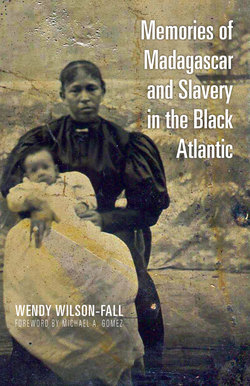Memories of Madagascar and Slavery in the Black Atlantic

Реклама. ООО «ЛитРес», ИНН: 7719571260.
Оглавление
Wendy Wilson-Fall. Memories of Madagascar and Slavery in the Black Atlantic
Отрывок из книги
Memories of Madagascar and Slavery in the Black Atlantic
This series of publications on Africa, Latin America, Southeast Asia, and Global and Comparative Studies is designed to present significant research, translation, and opinion to area specialists and to a wide community of persons interested in world affairs. The editors seek manuscripts of quality on any subject and can usually make a decision regarding publication within three months of receipt of the original work. Production methods generally permit a work to appear within one year of acceptance. The editors work closely with authors to produce high-quality books. The series is distributed worldwide. For more information, consult the Ohio University Press website, ohioswallow.com.
.....
A neat line from a specific Malagasy village to the early captives who came to America or from those captives to the people who tell their story today cannot be drawn. Most details of slave ancestors’ lives before captivity have been lost, if they were ever transmitted, as discussed above. The narratives show an internal struggle and dialogue whose main forum was the slave community or the segregated black community. Though the narratives are told through the aegis of the family, it is also useful to consider the possible meanings of the aggregate of families who share this practice of storytelling to question the metanarrative, the possible overall meaning of the narratives as a collection of stories. The subject of this book is, therefore, not the biography of an individual or individuals, but rather an attempt to describe a disparate group of people with common origins and common practices. It is a sort of ethnographic biography of an experience.
Commenting on Michael Lambek’s essay on remembering as moral practice, Maurice Bloch observes that there are instances where “questions of individual memory are developed by means of a public idiom and conversely the memory burdens of individuals contribute to the reproduction of that idiom and its ability to continue to commemorate the past [in Madagascar].”19 This description could also describe others’ cultural practices, such as those whose stories are in this volume. Their family narratives seem to be about, and used by, a network of families and are in fact sustained by such networks. In fact, the stories defy biological logic. They supersede the intricate mathematics of subdivision in genetic histories. If such beliefs are not based on the force of physical proof or on the evidence of an essentialist self-view of purity, what is the logic of their persistence? Do these narratives also have some moral functions? The answer to these questions is the main theme of this book.
.....